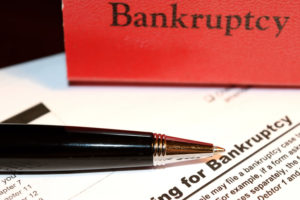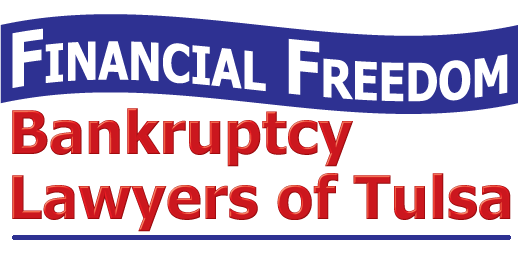Oklahoma Bankruptcy Help3 Requirements to File Chapter 7 Bankruptcy in Oklahoma

Do You Qualify for Chapter 7 Bankruptcy?
In order to file for Chapter 7 bankruptcy in Oklahoma, you need to meet certain requirements. Three primary factors will determine Chapter 7 bankruptcy failure or success:
- First, your income needs to be within a certain range – not too much and not too little.
- Second, Chapter 7 bankruptcy mostly pertains to certain kinds of debts, so you have to have the right kinds of debt. And…
- Third and Finally, you have to be able to show your post-bankruptcy income and expenses allow for a reasonable budget.
Calculating these expenses on your own is a grueling, time-consuming task. One incorrect calculation can render your bankruptcy application invalid or ineligible. If you have a lot of free time you may try to determine their finances on your own, but that’s not the whole picture.
To discover whether your income, expenses and budget qualify for Chapter 7 bankruptcy, call a Tulsa Chapter 7 attorney to discuss you financial situation. If you want more help filing for Chapter 7 bankruptcy, call a Bankruptcy Lawyer in Oklahoma today at (918) 786-9600.
How Income Determines Chapter 7 Bankruptcy in Oklahoma
The possibility that you make too much money to qualify for bankruptcy certainly exists. Bankruptcy courts compare your gross household income – all the money you and everyone in your house makes – with the median income for your area, which is approximately the average income for your area.
Financial Freedom Bankruptcy Lawyers know how to estimate gross income to determine if someone is making too much gross income to qualify for Chapter 7. If more than half of your debt is business debt, or if you are a qualifying service member – even a former service member – you might not be subject to income limits.
Reaffirmation and Liquidation
In Chapter 7, bankruptcy courts may require you to liquidate some property purchased with borrowed money. However there are exemptions. For example, if you have a car that you are making payments on, you may request that the vehicle be exempt from your bankruptcy. Not all personal vehicles are eligible for this process. Your primary personal vehicle is normally the one that court trustees mark for exemption. Clothing, tools used for work, furniture, books and other personal items may be exempt from liquidation in Chapter 7 bankruptcy.
How much income is too much?
The federal government uses income limits that determine how much money a person can make when filing for bankruptcy. This income limit derives from IRS standards of quarterly income. Formally, this income varies by state. Oklahoma bankruptcy income limit lands approximately around $40,000 a year for a single person. This number changes depending on factors such as family size and other family income as well.
Each individual person adds an additional ten thousand dollars to the means test value. To further elaborate, a married couple with two children has an income limit of $70,000. If the family earns less than $70,000, they are one step closer to eligibility for Chapter 7 bankruptcy. For your income limit, I recommend consulting with a bankruptcy attorney to determine if your means are above the standards listed by the government.
The Different Kinds of Debt in Chapter 7 Bankruptcy
Many people have little understanding of the debt they accrued. Before moving forward, understand that not all debts can be discharged in bankruptcy. Generally, there are two kinds of debts to consider when filing for Chapter 7 bankruptcy: secured and unsecured debt:
Secured Debt
Secure debts are things that creditors can take back. Cars, homes, recreational vehicles, and jewelry are properties susceptible to return in lieu of bankruptcy, specifically if they are not fully paid off. Most people with a lot of secure debt want to avoid chapter 7 bankruptcy as returning unpaid assets is possible.
What is Unsecured Debt?
Unsecured debt is not returnable and therefore, incapable of being liquidated. Unsecured debt is normally accrued via credit cards and things of the like. People too far in debt sometimes use Chapter 7 bankruptcy to evade enormous amounts of unsecured debt. People with unsecured debt are still susceptible to liquidation. Personal items that are not essential are capable of repossession and resale to pay some of your remaining debt.
In addition to secured and unsecured debt, you might have tax liabilities, student loans, child support arrearages, fines or other court-ordered obligations. Many of these debts cannot be discharged but they still count toward the third factor in bankruptcy qualification: your post bankruptcy budget.
Expenses Matter When Filing for Chapter 7 Bankruptcy in Oklahoma
One final thing to remember if you file for Chapter 7 bankruptcy in Oklahoma is to make sure your expenses fit your financial plan. People who file for bankruptcy who have yet to pay their car note or mortgage may want to reaffirm these assets. A reaffirmation is an agreements between a person and a loan company to continue payments on the loaned property. The government can easily question that you do not make enough money to afford a reaffirmation on your property. If this happens your bankruptcy can surely be in jeopardy. Making enough money is just as important as having enough available funds to cover your reaffirmations.
Low-cost Consultation With a Chapter 7 Bankruptcy Attorney
In today’s volatile economy, debt can consume even the wealthiest person on the planet. If your debt feels out of control, find a bankruptcy attorney in Tulsa, Oklahoma that can help solve your financial issues.
Financial Freedom Bankruptcy Lawyers of Tulsa offer low-cost strategy sessions to help debt-burdened Oklahoma neighbors discover the best approach to their financial crisis. Call us at (918) 786-9600 to start your low-cost consultation today. You may also contact us using the contact form button on this page to ask a professional bankruptcy attorney your personal questions.




